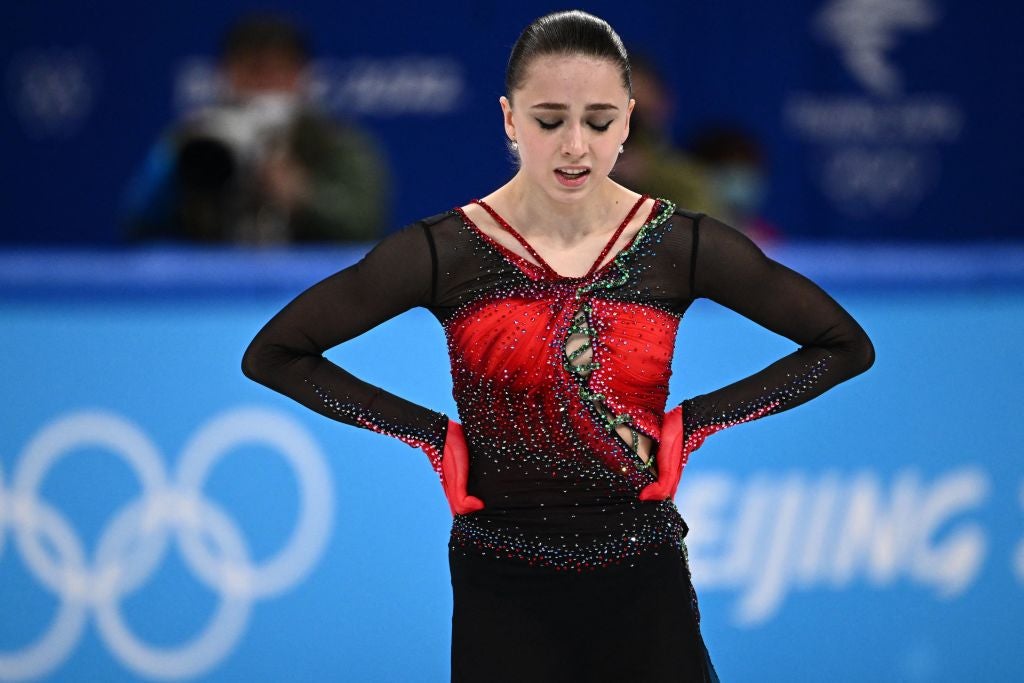Figure skating raise minimum age for competition after Kamila Valieva controversy
The Russian figure skater tested positive for a banned substance in Beijing in February, when she was 15

Figure skating has voted to raise the minimum age for competition from 15 to 17 following the controversy that marred the 2022 Winter Olympics.
Russian figure skater Kamila Valieva tested positive for a banned substance in Beijing in February, when she was 15.
Valieva's case prompted questions over whether the minimum age for competitors in figure skating needed to be raised to protect minors.
The minimum age for skaters will be 16 years old for the 2023-24 season and increase to 17 from the 2024-25 season onwards, in time for the 2026 Winter Olympics in Italy.
The proposal was passed by 100 votes to 16 with two abstentions at the congress in Phuket, Thailand, well clear of the two-thirds majority required.
"This is very important decision," International Skating Union president Jan Dijkema said after cheers and applause from delegates greeted the result. "I would say a very historic decision."
Valieva, who is now 16, had failed a doping test at the Russian national championships last December but the result was only revealed on 8 February, a day after she had helped the Russian Olympic Committee win the team event at the Beijing Games.
She was cleared to compete in the women's singles event in Beijing by the Court of Arbitration for Sport, but stumbled to fourth place with an error-laden free skate.
Russian figure skating coach Tatiana Tarasova suggested the rule change was aimed squarely at her country.
"They see that there is a large number of girls and boys in our country and they want to block them from competing," she told Russia's Match TV.
The Israeli delegate to the congress, supporting a failed amendment to the proposal, argued that the rule change would have a disproportionate impact on smaller nations with fewer skaters.
In an impassioned speech, however, ISU Athletes Commission member Eric Radford said that the vast majority of skaters were in favour of the change.
"The life of an athlete is short and intense, their experience in this short phase sets the platform for the rest of their lives -- physically, spiritually emotionally," said the Canadian, who won a pairs gold at the 2018 Olympics.
"While I hear the concerns of certain nations about the immediate difficulty that they might face with this proposal being passed ... is a medal really worth the life of a young athlete?"
Join our commenting forum
Join thought-provoking conversations, follow other Independent readers and see their replies
Comments
Bookmark popover
Removed from bookmarks